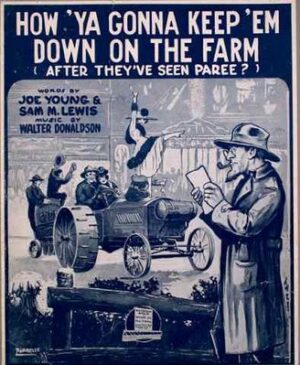14 Oct 2010
[Book Review]: First Principles: The Crazy Business of Doing Serious Science
First Principles: The Crazy Business of Doing Serious Science by Howard Burton Published by Key Porter BooksWorldCat • LibraryThing • Google Books • BookFinder Having met Howard Burton a number of times and getting to know his clear focus and overarching personal candour, this book presents a very personal story of building the Perimeter Institute for Theoretical Physics (PI) in Waterloo, ON. Overall, what emerges is a rare synergy between two remarkable individuals, Mike Lazaridis the philanthropist and Howard Burton charged to define and implement the fledgling Institute, who were singularly unafraid to break all existing rules and assumptions around what a Physics Institute should be like. The somewhat rebellious social entrepreneurship both of Burton and philanthropist Mike Lazaridis shine through. Clearly such intense candour can be incendiary in a small town like Waterloo. In fact, what emerged when I saw Howard speak this week at his local book signing, was to underscore my sense that the pride and unique sense of community of Waterloo was absolutely essential to PI’s success. Paradoxically, taken to an extreme, this same pride can easily morph into the risk averse conservatism of a small town. […]

3 Aug 2010
How You Gonna Keep ‘Em Down On The Farm?
“How You Gonna Keep ‘Em Down On The Farm” (excerpt) by Andrew Bird Oh, how ya gonna keep ’em down? Oh no, oh noOh, how ya gonna keep ’em down?How ya gonna keep ’em away from Broadway?Jazzin’ around and painting the town?How ya gonna keep ’em away from harm?That’s the mystery ______________________ This week, my 18 month old Blackberry finally bit the dust. Out of this came a realization that led me to the challenge I issue at the end of this post. Please don’t view my device failure to be a reflection on the reliability, or lack thereof, of Blackberry handsets. Rather, as a heavy user, I’ve found that the half life of my handsets is typically 18 to 24 months before things start to degrade – indeed, mobile devices do take a beating. The obsolescence of one device is, however, a great opportunity to reflect on the age-old question: What do I acquire next? That is the subject of this posting, which focuses on the quantum changes in the mobile and smartphone market over the last couple of years. I’ll start with a description of my smartphone usage patterns. […]

10 Apr 2010
FourSquare – Re-writing the Rules While Killer Application Remains Elusive
“Nature is by and large to be found out of doors, a location where, it cannot be argued, there are never enough comfortable chairs.”– Fran Lebowitz I’m a believer that Location Based Services (LBS), coupled with the latest smartphones, will evolve a number of indispensible, and unexpected, killer applications. That said, it’s pretty clear that those mission critical applications remain to be found. Essentially, the whole LBS opportunity, is a social experiment that early adopters are collaboratively helping to clarify. It was with those thoughts in mind when I decided to start using some of the popular LBS social media applications, or should I say social games? These included FourSquare, Yelp and Gowalla. Let me put this in context of other social media applications with which I’ve experimented. Back in 2007, I decided to try microblogging service Twitter, that was then in its infancy, I had low expectations. In fact, I expected to hate it, but mentally committed to give it a two week trial just for the purposes of self education. Over 3 years later, I’m still using it, love it and have found many applications which Twitter […]

5 Feb 2010
Ignite Passion before Money
This week I had the pleasure to be the luncheon speaker during the Ignite Entrepreneurship course put on by Guelph Partnership for Innovation, aimed at University of Guelph graduate students from various technical fields including biology, life sciences, materials, agribusiness, etc. It’s always a thrill to get into a room with 40 or so energetic and bright grad students who are considering going into business. And, kudos to GPI for hosting this. As an experiment, I broadcast the 3 questions out into social media-verse (Facebook, LinkedIn, Twitter) and got some great UGC that I factored into the presentation. Here are the questions regarding Money and Startups that I attempted to address: Do you really need it? Where will it come from? and What will you do with it? I’d be delighted if any of you could comment on the topic as well. It’s an extraordinarily challenging time to startups to find funding right now, and the importance of a healthy pipeline of new companies to our future well being, has led me to dedicate a fair portfion of my social enterprise/sharing time to the issue of the serious funding gap […]

1 Jan 2010
Technology Visionaries in the 1990’s: A 21st Century Retrospective
“It is sobering to reflect on the extent to which the structure of our business processes has been dictated by the limitations of the file folder.” -Michael Hammer and James Champy, Reengineering Your Business Recently, I unearthed a 10 year old book by Bill Gates, Business @ the Speed of Thought and took a bit of time to re-scan that 1999 book. On the first day of 2010, it seems appropriate to study technology trends to help give perspective to the future of the digital revolution. Far from being an overtly partisan paen to Microsoft, the passion and enthusiam for change reflective both Bill Gates personality and the thinking of that era, shine through. What is being presented is a prescription for a world, focused primarily on business, where mass adoption of networked computing unleashes a digital, knowledge-based revolution. In the 1990’s, Information Technology (“IT”) was considered a “necessary evil” in business, being viewed largely as a cost centre, and consigned to report to the CFO with a major focus on cost control. Although we’ve made some progress in the last decade, there is still a huge need to […]
13 Dec 2009
[Book Review]: Here Comes Everybody
Here Comes Everybody: The Power of Organizing Without Organizations by Clay Shirky Published by Penguin BooksWorldCat • LibraryThing • Google Books • BookFinder Clay Shirky does a fantastic job of explaining why lowered transaction costs from recent inventions like computing, internet and mobility have led to a new world order in which individuals can collectively achieve what organizations used to have a stranglehold on. Specifically, this is a great way to look at how these changes, often labelled social networking or social media, are transforming business, government and nonprofits. Thanks to Bill Pase for recommending this.

9 Nov 2009
Die Berliner Mauer – 20 Years After “The End of History”
“What we may be witnessing is not just the end of the Cold War, or the passing of a particular period of post-war history, but the end of history as such: that is, the end point of mankind’s ideological evolution and the universalization of Western liberal democracy as the final form of human government.” – Francis Fukuyama, 1989 This week marks the 20th anniversary of the fall of the Berlin Wall. Was it the “end of history” that Francisc Fukayama suggested? Although perhaps that’s an exaggeration, it was probably the most transformational event in our lifetimes. Certainly, it ended a cycle of tyranny and brutality under totalatarian ideologies like Naziism, Stalinism, Fascism, Communism, etc., that characterized much of the Twentieth Century. In some ways, the Iron Curtain, of which the Berlin Wall was the most visible manifestation, froze half a continent in time, almost as if the World War II didn’t really end until 1989. While our world today is by no means perfect, the events of 1989 delivered greater democratic and economic rights to hundreds of millions of central and eastern European people, not to mention exerting a […]
1 Jan 2012
Dennis MacAlister Ritchie (1941-2011) – My Inspiration by a Great Man Who Quietly Shaped an Industry
NOTE: The intrusion and profusion of projects in my life, has prevented blogging for some time. As 2011 draws to a close, I thought I needed to make an effort to provide my perspective on some important milestones in my world.Back in October, when Rob Pike posted on Google+:I just heard that, after a long illness, Dennis Ritchie (dmr) died at home this weekend. I have no more information.I trust there are people here who will appreciate the reach of his contributions and mourn his passing appropriately.He was a quiet and mostly private man, but he was also my friend, colleague, and collaborator, and the world has lost a truly great mind.Although the work of Dennis Ritchie has not been top of my mind for a number of years, Rob’s posting dredged up some pretty vivid early career memories.As the co-creator of UNIX, along with his collaborator Ken Thompson, as well as the C Programming Language, Dennis had a huge and defining impact on my career, not to mention the entire computer industry. In short, after years as a leader in technology yet market laggard, it looks like in the end, […]